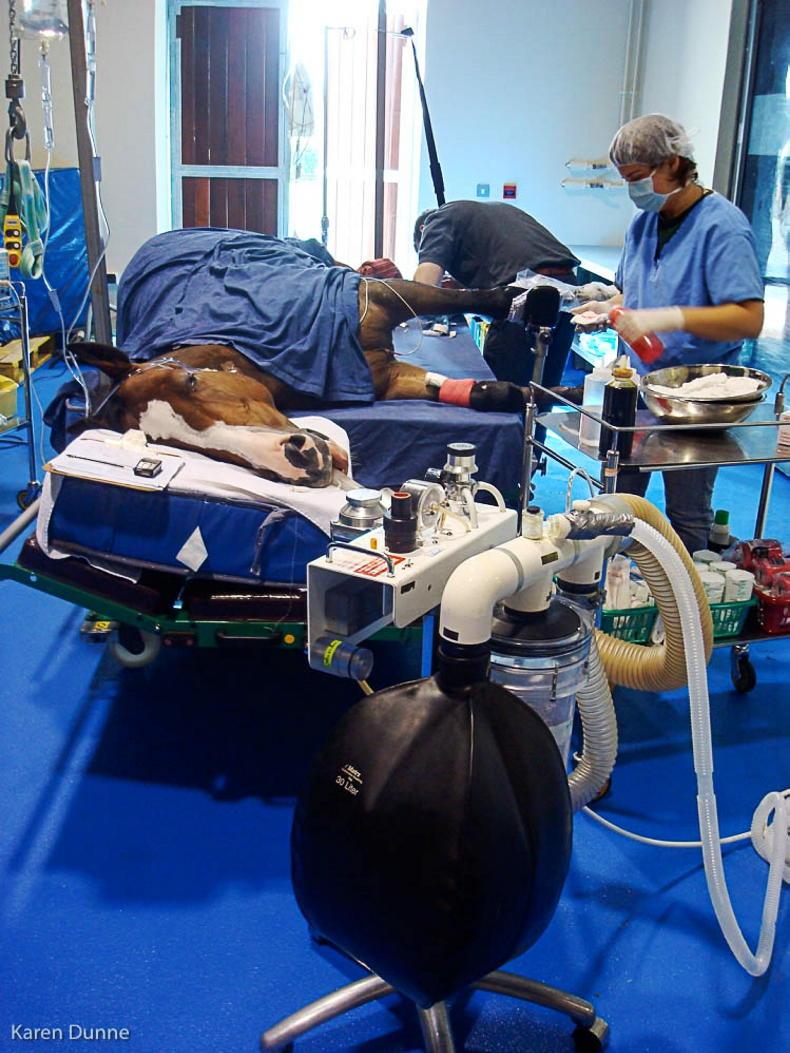IMPACTION type colic is commonly seen when horses change from summer turnout to winter stabling. It is also seen when horses are on periods of box rest, either due to weather or for medical reasons. Impaction colic is specifically when dry matter gets blocked within the horse’s gastrointestinal tract (GI). The main area in which this blockage occurs is the pelvic flexure within the large colon. This is an area where the gut does a U turn making it much more susceptible to blockages.
Symptoms
Early calls to the veterinarian are key in these cases, impactions are easier to treat and resolve before they get very large. Normally your horse’s heart rate will be in the normal range with this form of colic. They tend to have reduced gut sounds and an impaction can be felt on a rectal examination. If your veterinarian has any concerns they may perform this examination to rule in or out an impaction.
Treatment
Pain relief
Nasogastric tubing: A tube is passed up your horse’s nose, they are encouraged to swallow and the tube is passed down into the stomach. Fluids are administered which contain electrolytes or salts. This will encourage absorption into the blocked material helping it to soften so it is able to pass freely. The tubing may need to be repeated on regular occasions depending on the extent of the blockage. The horse will be starved until the blockage has passed.
Prevention
24/7 access to fresh water, a luke warm bucket of water can encourage drinking in the colder months when water sources are prone to freezing. Adding a tennis ball to the water source can prevent freezing.
Soaking feed and hay when horses undergo a management change can help increase water intake and prevent impactions. Exercise where possible helps to keep the gut moving and will decrease the risk of impaction.




 This is a subscriber-only article
This is a subscriber-only article
 It looks like you're browsing in private mode
It looks like you're browsing in private mode









SHARING OPTIONS: